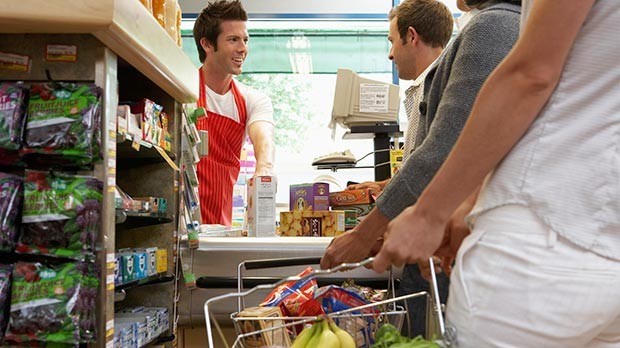Hands up who’s been trying to slip through the supermarket or toy store checkout lately, only to be asked if you’d like to throw another twoonie – a buck’s not enough anymore - onto your bill in aid of a charity of the retailer’s choice?
The ambush tactic is getting more prevalent by the week and concerns are being raised as to whether the practice is risking the goodwill of people who wouldn’t ordinarily think twice about digging deep into their purse or pocket for the heavier coins.
Peter Armstrong, president of the BCACG (British Columbia Association for Charitable Gaming) – a non-profit umbrella society mandated to represent charities’ interests in B.C. since 1997 – questioned how often those pooled twoonies reach their intended destinations and wonders if anyone gets a tax receipt.
“We could be getting close to saturation point when it comes to soliciting donations; especially at the checkout,” said Armstrong.
“I’m a bit cynical of those donating opportunities. In the end, the question I ask is, ‘If I donate $2, when does that $2 reach the charity?’ And if it goes once a month, that’s a lot of dollars. Is there a tax receipt and who gets that?
“You could easily donate $2 about 10 times when out shopping on the weekends; that¹s a lot of potential tax receipts for big businesses.”
The Richmond Food Bank is sensitive to testing people’s goodwill.
“We used to go out and thank people for their donations, but we stopped that about five years ago, because we got the impression they thought we were just asking them to donate again,” said the food bank’s executive director, Margaret Hewlett.
“Our board will still call people up and thank them personally, but they’re careful not to come across as asking for more money.
“But we allow people to come in here and volunteer as part of team-building exercises. That tends to help our presence in the community instead of going around knocking on doors for donations.”
The checkout phenomenon of pervasive fundraising, Armstrong says, is a symptom of the increasingly competitive and often alien, dog-eat-dog world charities find themselves immersed in these days.
“We now have situations where, when a new need in the community is identified, a society or non-profit suddenly pops up” Armstrong said.
“This is fine. But, one way or another, you take away something in terms of volunteers, fundraising and donations from someone else when that happens.
“Everybody is just trying to survive and they truly believe theirs is the most worthy cause. And when the government cutbacks arrive, like they often do, the people that end up suffering the most are the ones that can least afford it.
“There are so many groups around the province that are called into action to help these people. And there are more and more people coming in all the time to seek help.”



